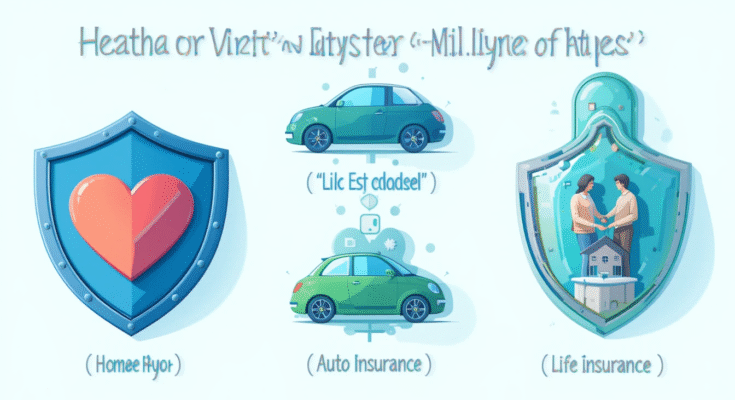
Insurance often feels complicated and overwhelming, especially if you’re just starting to explore financial planning. With so many types of policies and confusing terms, it’s easy to feel lost. However, understanding the basics of insurance can save you money, protect your future, and give you peace of mind.
This beginner’s guide will help you understand what insurance policies are, why they matter, and how to choose the right ones for your needs.
What is Insurance?
Insurance is a financial agreement between you (the policyholder) and an insurance company. You pay a premium (monthly, quarterly, or yearly), and in return, the company agrees to provide financial protection against specific risks—such as accidents, illnesses, or property damage.
The idea is simple: instead of bearing the full cost of a loss alone, you share the risk with others through your insurance provider.
Why Insurance Matters
Life is unpredictable. Accidents, health issues, or financial setbacks can happen when you least expect them. Insurance ensures that when such events occur, you’re not left facing huge financial burdens alone.
Key benefits of insurance:
- Provides financial security
- Reduces stress during emergencies
- Protects loved ones and assets
- Helps with long-term financial planning
Common Types of Insurance Policies
There are many kinds of insurance, each serving a different purpose. As a beginner, here are the main ones you should know:
1. Life Insurance
Protects your family’s financial future by paying a lump sum (death benefit) to beneficiaries if you pass away.
Best for: Anyone with dependents or financial responsibilities.
2. Health Insurance
Covers medical expenses such as doctor visits, hospital stays, surgeries, and medicines.
Best for: Everyone—because healthcare costs are rising rapidly.
3. Car (Auto) Insurance
Protects you financially if your vehicle is damaged, stolen, or involved in an accident. Often legally required.
Best for: Vehicle owners.
4. Home Insurance
Covers damages to your home and belongings caused by events like fire, theft, or natural disasters.
Best for: Homeowners and property investors.
5. Travel Insurance
Provides coverage for trip cancellations, lost luggage, medical emergencies abroad, or flight delays.
Best for: Frequent travelers.
6. Business Insurance
Protects businesses from financial risks such as liability claims, property damage, or employee-related issues.
Best for: Business owners and entrepreneurs.
Key Terms You Should Know
Insurance policies come with technical terms that can be confusing. Here are the basics explained in simple words:
- Premium: The amount you pay to keep your insurance active.
- Deductible: The amount you must pay out of pocket before the insurer covers the rest.
- Coverage: The risks and events that your policy protects you against.
- Claim: A request you make to the insurance company when you experience a loss.
- Exclusion: Situations or risks that the policy does not cover.
How to Choose the Right Insurance Policy
Picking an insurance policy depends on your needs, lifestyle, and financial situation.
Steps to choose wisely:
- Identify your needs – Do you need health coverage, car protection, or family security?
- Set a budget – Choose premiums you can afford consistently.
- Compare options – Look at multiple providers, coverage limits, and benefits.
- Read the fine print – Understand exclusions, terms, and renewal conditions.
- Seek expert advice – A financial advisor can help if you’re unsure.
Common Mistakes Beginners Make
- Buying the cheapest policy only: Low premiums may mean limited coverage.
- Not reading exclusions: Many people assume everything is covered.
- Delaying insurance: Waiting too long can increase costs or risk denial.
- Not reviewing policies: Needs change over time—update your coverage regularly.
How Much Insurance Do You Really Need?
The answer depends on your life stage:
- Young adults: Focus on health and basic car insurance.
- Families with kids: Add life insurance for financial security.
- Homeowners: Protect property with home insurance.
- Business owners: Secure your company with business insurance.
A balanced approach ensures you’re protected without overspending.
Final Thoughts
Insurance may seem complex, but at its core, it’s about protection and peace of mind. By understanding different types of policies, learning key terms, and avoiding common mistakes, you can make smart decisions that safeguard your future.
Start small—get the essentials like health and life insurance—and expand coverage as your needs grow. Remember, the best insurance is the one that offers the right protection at the right time.



